All weekend the air was thick with clouds of musket and canon fire, the yelp of marching orders, the delicate whistle of the fife and military cadence of drums. Swatches of blue and red wool, crisscrossed with white satchel belts, and glinting musket locks, marched down High Street on Saturday, and across Caulk’s Field on Sunday to reenact the fateful skirmish that bloodied the same field exactly 200 years ago.
Saturday’s parade kicked off the weekend with an impressive array of cavalry and marching troops. A musket volley across Monument Park and wreath placement honored the historic engagement that took place the night of August 30 1814.
A short video of parade highlights.
On Sunday afternoon, after a solemn wreath laying and dedication of a new monument at the memorial’s current site, a well orchestrated reenactment of the Battle of Caulk’s Field took place under a scorching sun. Several thousand attended the event along with many vendors offering period craft items and souvenirs.
Historically accurate—except for the fact that the actual battle too place at night—the battle reenactment showed the clash between the 21st Regiment of the Maryland Militia (played by the volunteer living history military interpretive unit Chesapeake Independent Blues) and reenactors playing British Royal Navy and Marines from Capt. Sir Peter Parker’s ship, HMS Menelaus.
About 150 British Marines, sailors and midshipmen advanced toward 174 local militia commanded by Lt/ Col. Philip Reed.
The battle has been well documented with help from archeologists from University of Maryland and State Highway Administration who have discovered more than 700 artifacts. Soldiers accounts of that day have also been valuable in retracing the event.
Parker’s death on the field ended the British advancement into Kent County. It is said that this small but significant victory inspired the defenders at Fort McHenry. Who knows—perhaps there would not have been a Stars Spangled Banner without the defeat of the British in that short battle on a dark night in a cornfield west of Chestertown.
The following shows highlights of the reenactment. The video starts with the Dover English Dancers demonstrating some period dances.



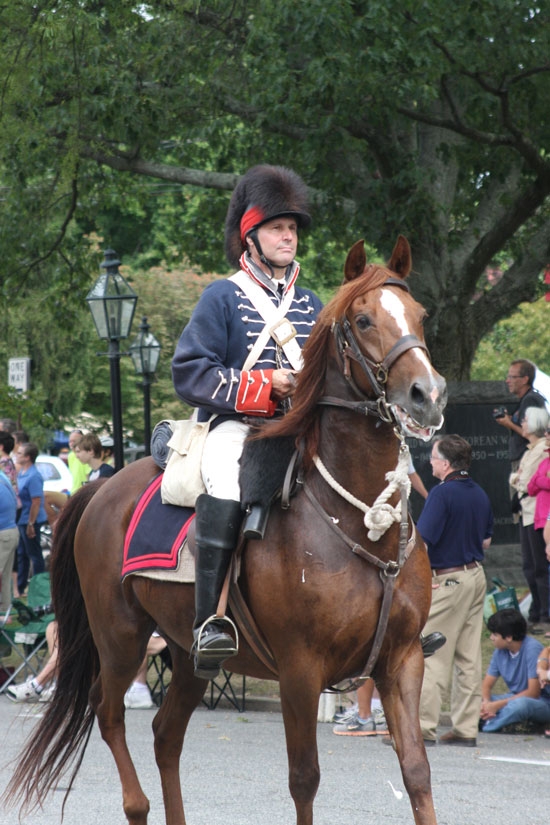
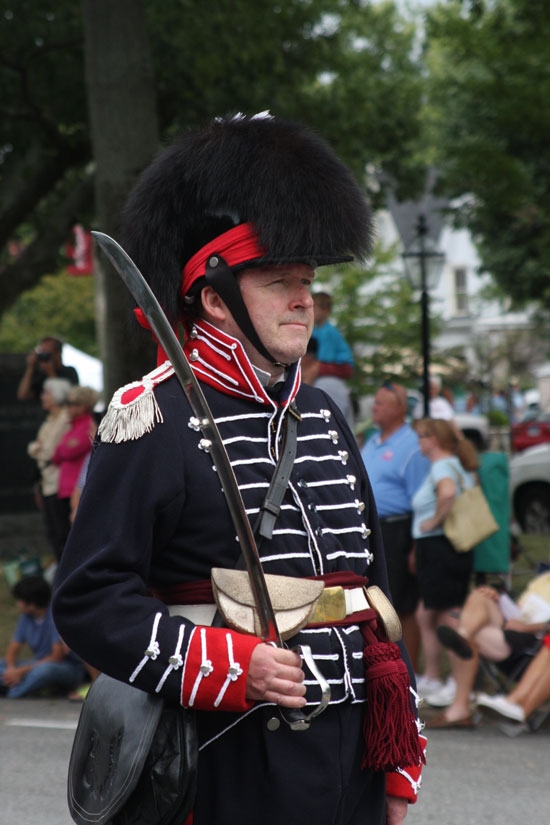
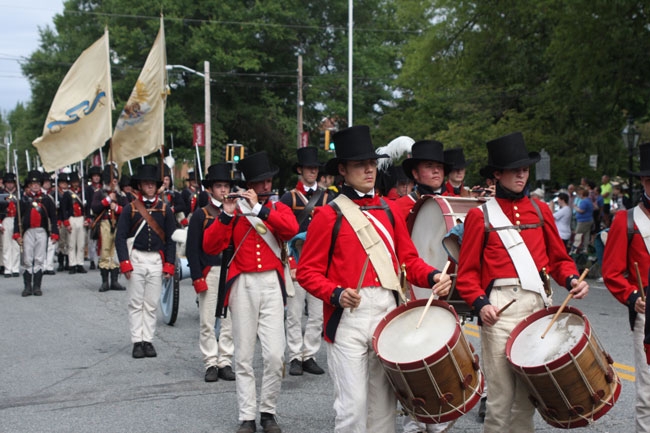



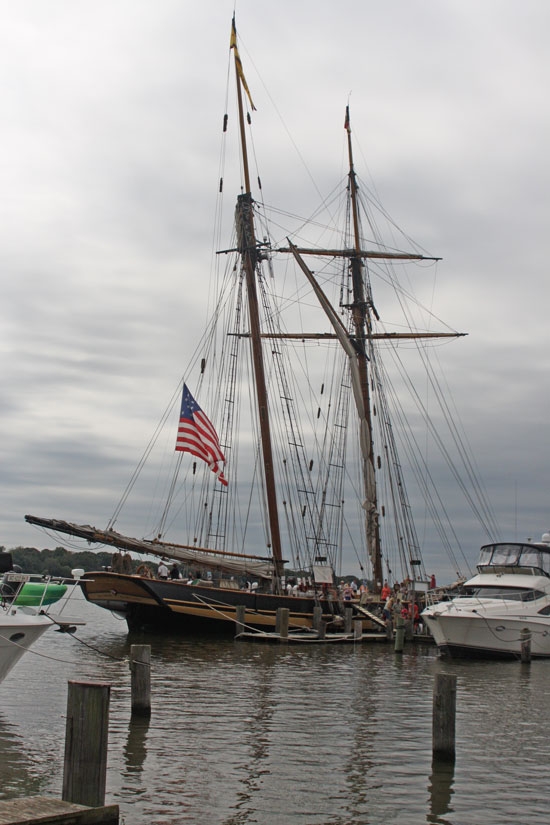
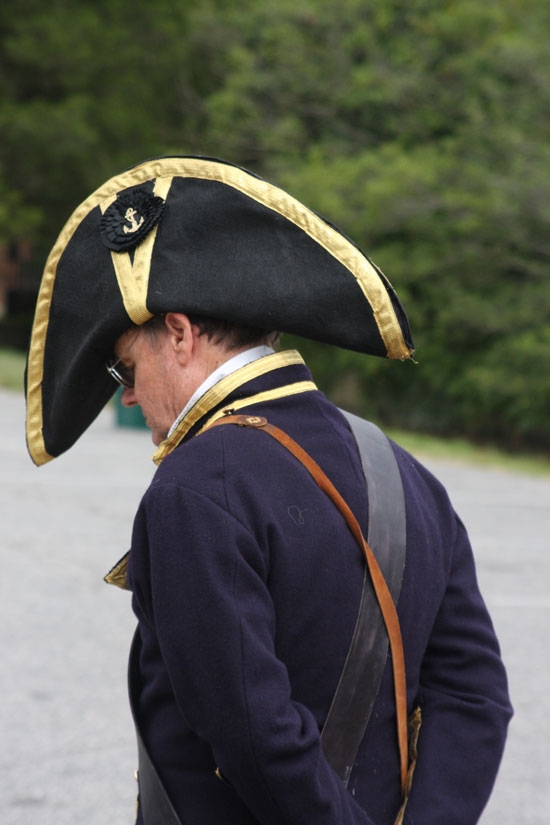
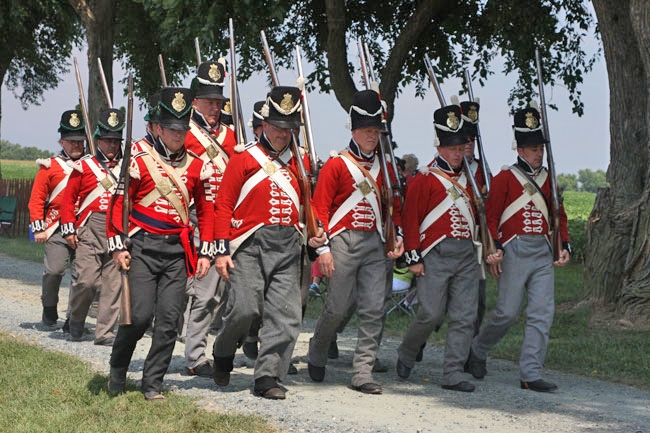


Marge Fallaw says
While I enjoyed and learned from Sunday’s well-planned reenactment, I was somewhat surprised (and disappointed) that neither in the weekend’s program nor on the website was there any mention (or text) of contemporary poems about the battle and the death of Sir Peter Parker. The best-known one (whose title I tend to misremember as “Sir Peter Pickled”) is by Philip Freneau, a Princeton graduate who is best known (and at least formerly included in American literature survey courses) as the poet of the American Revolution. (Freneau didn’t seem to realize that Kent Island was no longer part of Kent County or perhaps he was taking poetic license with certain historical facts.)
A less well-known poem (text also below) was “Sir Peter Parker,” by Charles L.S. Jones, evidently sung to the tune “Maggy Lauder.”
A interesting related poem (also found on bartleby.com) is about the naval misadventure during the American Revolution of the first Sir Peter Parker, grandfather of the second (of Caulk’s Field fame), during the 1776 British attack on Sullivan’s Island (near Charleston, S.C.).
It can be found at:
https://www.bartleby.com/338/337.html
*********************************
William McCarty, comp. The American National Song Book. 1842.
Sir Peter Petrified
By Philip Freneau (1752–1832)
On the modern Sir Peter Parker’s expedition to Kent Island, in Chesapeake Bay—1814
SIR PETER came, with bold intent,
To persecute the men of Kent,
His flag aloft display’d:
He came to see their pleasant farms,
But ventured not without his arms 5
To talk with man or maid.
And then the gallant Colonel Reed
Said, “We must see the man, indeed;
He comes, perhaps, in want—
Who knows but that his stores are out: 10
’Tis hard to dine on mere sour-krout,
His water may be scant.”
He spoke—but soon the men of Kent
Discover’d what the errand meant,
And some discouraged, said, 15
“Sir Peter comes to petrify,
He points his guns, his colours fly,
His men for war array’d!”
Secure as if they own’d the land,
Advanced this daring naval band, 20
As if in days of peace;
Along the shore they prowling went,
And often ask’d some friends in Kent
Where dwelt the fattest geese?
The farmers’ geese were doom’d to bleed; 25
But some there were with Colonel Reed,
Who would not yield assent;
And said, before the geese they take,
Sir Peter must a bargain make
With us, the boys of Kent. 30
The Britons march’d along the shore,
Two hundred men, or somewhat more;
Next, through the woods they stray’d:
The geese, still watchful, as they went,
To save the capitol of Kent 35
Their every step betray’d.
The British march’d with loaded gun,
To seize the geese that gabbling run
About the isle of Kent;
But, what could hardly be believed, 40
Sir Peter was of life bereaved
Before he pitch’d his tent.
Some Kentish lad, to save the geese,
And make their noisy gabbling cease
Had took a deadly aim: 45
By Kentish hands Sir Peter fell,
His men retreated with a yell,
And lost both geese and game!
Now, what I say, I say with grief,
That such a knight, or such a chief, 50
On such an errand died!
When men of worth their lives expose
For little things, where little grows,
They make the very geese their foes;
The geese his fall deride: 55
And, sure, they laugh, if laugh they can,
To see a star and garter’d man
For life of goose expose his own,
And bite the dust with many a groan;
“Alas!” a gander cried, 60
“Behold, (said he,) a man of fame
Who all the way from England came
No more than just to get the name
Of PETER PETRIFIED.”
**********************************
William McCarty, comp. The American National Song Book. 1842.
Sir Peter Parker
By Charles L. S. Jones
Tune—“Maggy Lauder”
LET others sing, whilst loudly ring
The valleys to their measures,
Of love, or wine, or sports divine,
Made vocal by their pleasures;
Be mine the theme, 5
No fancied dream
Of visionary barker;
The warlike cheer,
And welcome here,
Of brave Sir Peter Parker. 10
Let not the muse her strains refuse,
Accordant to my metre,
Whilst I declare the exploits rare
Of valiant-hearted Peter;
Nor deem me wrong 15
To raise the song—
Of praise I am no sharker;
But let my shell
The wonders tell
Of brave Sir Peter Parker. 20
He oft would boast to rule the roast
Upon the briny ocean;
And scold and jeer with glorious cheer,
Expecting high promotion:
Whilst from his fun 25
The Yankees run,
As fearful of a jeering;
Lest like Van Tromp
Their hides he’d thump,
His broom at mast-head rearing. 30
Long had he sail’d, and nothing hail’d,
As worthy of a winner;
So did desire, to ease his ire,
A Baltimorean dinner;
And in he sent with that intent 35
His compliments, high sounding,
Whilst, from on board,
His thunders roar’d,
Their Yankee souls astounding.
But not to be behind in glee, 40
Or hospitable freedom,
They answer sent, he might have twent-
Y dinners if he’d need them;
O glorious feast,
For prince, or priest, 45
’Twould cure the gout or cholic;
Sir Peter swore,
He ne’er, before,
Saw such a Yankee frolic.
But most his tongue thy praises rung, 50
Jamaica’s lively liquor;
And swore, ’twas fit to enliven the wit
Of laymen or of vicar:
So not in fun
To be outdone, 55
They sent this gallant sparker,
Well season’d, home,
In his favourite rum,
The far-famed Peter Parker.
Carol Brown says
Thank you for a wonderful account of the activities of this Caulk’s Field Battle …………………. The Spy did it justice with superior reporting and photography……Kudos to you and your staff…keep up the good work!
Steve Payne says
Nice pictures!!